NEWS RELEASE
AFREWATCH named 2021 recipient of Human Rights and Business Award
Human Rights and Business Award Foundation
Geneva, 30 November 2021
Today, during the annual United Nations Forum on Business and Human Rights, our foundation is naming AFREWATCH (African Resources Watch), based in Democratic Republic of Congo (DRC), as recipient of the 2021 Human Rights and Business Award. The award, recognizing “outstanding work by human rights defenders addressing the human rights impacts of business”, is accompanied by a $50,000 grant. The 2021 award was announced today by two members of the foundation’s Advisory Network in a brief video, available in English and French, which also features AFREWATCH’s Executive Director accepting the award on behalf of the organization.
The foundation’s board members (Chris Avery, Regan Ralph and Valeria Scorza) said today: “The award decision this year was extremely difficult, given the quality of human rights work being done in relation to the private sector by so many African organizations. We congratulate AFREWATCH as a very deserving winner of the award – and pay tribute to all the organizations nominated this year.”
The foundation’s Advisory Network member Abiodun Baiyewu (Co-Chair of the African Coalition for Corporate Accountability’s steering group, and Executive Director at Global Rights) said: “AFREWATCH is a fantastic organization doing brave work. It is their consistency and resilience in an often-hostile environment that endears them to me.”
Advisory Network member Seema Joshi, Director of Campaigns at Global Witness who previously worked at Amnesty International as Head of Business and Human Rights, said: “The seminal 2016 joint report by Amnesty and AFREWATCH, ‘This is What We Die For’, could not have been produced but for AFREWATCH’s courage and hard work. AFREWATCH operates in very challenging circumstances and has been doing so for a number of years. The organization and its Executive Director, Emmanuel Umpula, are well-known and very respected by international NGOs that work on Congolese-related mining issues. It is a small organization but hits above its weight.”
The award alternates annually by region – this year sub-Saharan Africa, next year Eastern Europe/former Soviet Union.
Achievements of AFREWATCH
AFREWATCH, headquartered in Lubumbashi (southeastern DRC), advocates for the fair, equitable and transparent development of natural resources in Africa for the benefit of all. It calls on companies and governments to include the needs of local communities in their planning, priorities and operations, and to integrate those communities into the management of natural resources. AFREWATCH seeks to safeguard human rights and protect the environment by holding companies and governments accountable. It researches and reports on abuses by mining and oil companies and by governments; engages with government officials to advocate for improvements in law and practice; presses for extractive companies to pay their fair share of taxes, and helps grassroots community organizations build their capacity.
AFREWATCH has been praised for its high-quality research and advocacy, and its close connection with impacted communities. The organization has drawn attention to issues including communities displaced without adequate compensation; dangerous and sometimes life-threatening working conditions; child labor; and the pollution of people’s lands, water and air with toxic chemicals that cause harm to health. In some cases, mining companies have been complicit in, or silent about, killings, torture, rape and other serious abuses against local populations by security forces and armed groups. Private security guards of mining companies, or Congolese national police or soldiers providing security services to those companies, have subjected artisanal miners and other local people to killings, shootings, torture, beatings, arbitrary arrest and illegal detention.
In 2015 and 2016 AFREWATCH and Amnesty International carried out investigations in the former Katanga region of DRC, visiting five artisanal mining sites where cobalt is extracted (a metallic element used in mobile phones, laptops, and other electronic devices). They documented human rights abuses against women, men, and children as young as seven, who mined cobalt by hand in extremely hazardous circumstances, without protective clothing, in intense heat. In many cases the miners were subjected to violence, extortion and intimidation. Children reportedly worked for up to 12 hours a day in the mines, carrying heavy loads, and earning between one and two dollars a day. This led to publication of the joint groundbreaking 2016 report This is What We Die For: Human rights abuses in the Democratic Republic of the Congo power the global trade in cobalt, which documented these abuses and asked leading international companies (including the following firms) to clarify whether cobalt from that region was in their supply chains: Ahong, Apple, ATL, BYD, China BAK Battery, Daimler, Dell, HP, Huawei, L&F Material, Lenovo, LG, Microsoft, Samsung, Sony, Vodafone, Volkswagen and ZTE. Company responses are in the report’s annex; some companies said they were investigating the connection between their supply chain and the reported abuses; none of the companies were able to independently verify where the cobalt in their products came from. Companies that completely failed to respond at that time included Chinese firms Ahong, BYD, China BAK Battery, and ZTE; Hong Kong firm ATL (Amperex Technology Limited); South Korean firm L&F Material; and USA firm Dell. AFREWATCH and Amnesty International called on companies to conduct investigations of their cobalt supply chains, to check for abuses, to be more transparent about their suppliers, and to provide remedy to those who have been harmed by their business operations.
Below are just a few of many cases documented in a recent report by AFREWATCH about private security companies and human rights in the DRC provinces of Haut-Katanga and Lualaba. These cases occurred at or near Tenke Fungurume Mine; Tenke Fungurume Mining company (TFM) is one of the largest copper and cobalt producers in the DRC. Since 2016 the majority owner of TFM has been China Molybdenum Company, headquartered in China.
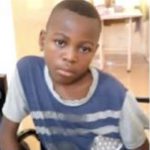
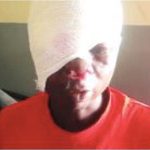
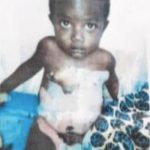
- A 10-year-old boy (Romus MUKAYA SABWE), who was playing in his family’s yard, was hit by a stray bullet on August 22, 2019, reportedly fired by a soldier guarding the TFM mine. The boy is paralyzed as a result of that shooting.
- On July 6, 2020, Frank BWANDAJ IPANG was shot by a soldier as he was exiting the mine after paying half rather than full fee for digging that day – he lost his right eye and his head was seriously injured.
- In 2017 a minor girl who requested anonymity suffered a gang rape reportedly committed by TFM private security guards and police. A group of rapists was reportedly arrested, tried and sentenced to 10 years in prison. As of mid-2021 the victim had never been compensated. She reportedly kept crying and left the area to live elsewhere.
- In 2017, five women in the diggers camp near Menda quarry were reportedly victims of gang rape during the night perpetrated by soldiers and armed police associated with the TFM mine. Some of the perpetrators were prosecuted; these female victims have never received redress despite medical evidence and the prosecutions.
- In 2019, after a massive intrusion of TFM mining sites by artisanal miners, the company requisitioned hundreds of soldiers to expel the miners from several quarries. Soldiers then went to nearby villages of artisanal miners and reportedly destroyed houses and engaged in killings, torture, arbitrary detention and illegal searches. On the night of July 22, 2019, at around 10 pm, soldiers set fire to some huts where artisanal miners were thought to live – in one of them a 2-year-old child named Romulus ILUNGA MWEPU was sleeping and suffered extensive burns before being rescued. The child spent a month in a hospital intensive care unit. The child’s father repeatedly tried to contact the company for compensation for his son, but those efforts were reportedly unsuccessful.
AFREWATCH strives to assist victims of abuses in seeking justice, but there are many obstacles to legal recourse in DRC, and victims are usually left without any remedy.
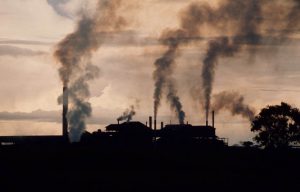
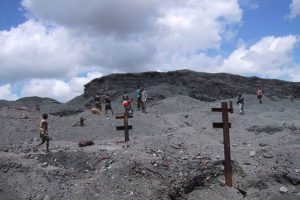
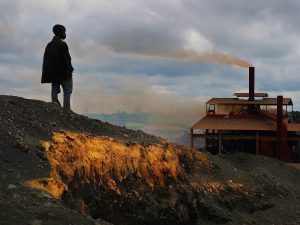
In January 2021 AFREWATCH wrote to the United Nations Committee on the Rights of the Child (CRC), calling for action to address the continuing harm to children caused by the Kabwe lead mine in Zambia. That mine operated from 1904-1994 and covered much of the area with lead dust from its smelter, dust which remains in the soil today. A 2019 Human Rights Watch report about Kabwe stated: “The consequences for children who are exposed to high levels of lead and are not treated include reading and learning barriers or disabilities; behavioral problems; impaired growth; anemia; brain, liver, kidney, nerve, and stomach damage; coma and convulsions; and death. After prolonged exposure, the effects are irreversible. Lead also increases the risk of miscarriage and can be transmitted through both the placenta and breastmilk.” Medical studies have continued to show massive levels of lead in many young children in Kabwe. A lead poisoning class action lawsuit on behalf of a class that could potentially exceed more than 100,000 Zambian children and women of childbearing age has been brought against Anglo American South Africa Limited, which allegedly controlled the mine from 1925-1974. In his letter to the UN Committee, Emmanuel Umpula (Executive Director of AFREWATCH) wrote: “The situation in Kabwe is extremely concerning and we strongly urge the CRC to investigate the claims made against Anglo American by the claimants in the class action lawsuit. Anglo American’s conduct during its 50-year management and supervision of the mine led to today’s conditions, whereby the lives of countless children are at serious risk – including the risk of death. The failure by Anglo American to take action to address the ongoing damage to the health and environment of the Kabwe communities does not accord with its publicly-stated commitments. This must change immediately.”
The broad range of human rights and environmental issues addressed by AFREWATCH is illustrated by its many recent reports, articles and press releases (available on its website), which include:
- Les sociétés de sécurité privée et les droits de l’homme dans les provinces du Haut-Katanga et du Lualaba : Analyse du cadre légal et état des lieux de la situation des droits de l’Homme (juin 2021)
- Unofficial translation: Private security companies and human rights in the provinces of Haut-Katanga and Lualaba: Analysis of the legal framework and inventory of the human rights situation (June 2021)
- Convention de la Sino-Congolaise des Mines: Qui perd, qui gagne entre l’État congolais et la Chine ? Evaluation de l’exécution des obligations des parties à la convention de collaboration de 2008 (juin 2021)
- Unofficial translation: Sino-Congolaise mining convention: Who loses, who wins between the Congolese state and China? Assessment of the fulfillment of the obligations of the parties to the 2008 collaboration agreement (June 2021)
- État des lieux de la gestion des impacts du COVID-19 par les entreprises minières et l’État congolais dans les provinces du Haut-Katanga et du Lualaba (de mai à décembre 2020) (fevrier 2021)
- Unofficial translation: Status of the management of the impacts of COVID-19 by mining companies and the Congolese state in the provinces of Haut-Katanga and Lualaba (from May to December 2020) (February 2021)
- “Zambie : AFREWATCH demande au Comité des droits de l’enfant des Nations Unies d’enquêter sur les allégations contre Anglo American concernant l’empoisonnement au plomb de 100.000 enfants.” (janvier 2021)
- “The overflow of chemicals from the Ruashi Mining’s tailings pond is a threat to local communities” (October 2020)
- “L’entreprise Mutanda Mining doit assumer ses responsabilités face à la pollution de la rivière Luakusha et du lac Kando et la destruction des champs des populations locales” (octobre 2020)
- Unofficial translation: “The Mutanda Mining company must assume its responsibilities in the face of the pollution of the Luakusha River and Kando Lake and the destruction of the fields of local populations” (October 2020)
- Rapport de l’atelier de réflexion des parties prenantes organisé à Kolwezi sur l’artisanat minier dans la province du Lualaba (mai 2020)
- Rapport d’accompagnement des communautés vivant autour des entreprises minières: Expérience de AFREWATCH dans la province du Lualaba en RDC de 2015 à 2018 (mai 2019)
- Unofficial translation: Support report for communities living around mining companies: Experience of AFREWATCH in the province of Lualaba in the DRC from 2015 to 2018 (May 2019)
Human rights and development NGOs that have been partners of AFREWATCH, sometimes working together on research and reports, include African Coalition for Corporate Accountability, Amnesty International, Bank Information Center, ESCR-Net (International Network for Economic, Social & Cultural Rights), Pain pour le prochain, RAID (Rights and Accountability in Development), and SOMO (The Centre for Research on Multinational Corporations).
In 2014 AFREWATCH director Emmanuel Umpula was keynote speaker at the 5th annual Mary Robinson Speaker Series event in New York City, organized by Business & Human Rights Resource Centre and hosted by Ford Foundation. Emmanuel was introduced by Mary Robinson (former United Nations High Commissioner for Human Rights, and President of Ireland), and joined in a discussion with Mary and other experts from civil society, business and government on the subject: “Managing Congo’s resource wealth – from plunder to shared prosperity?”
All nominees for the 2021 award
Following is a list of all the organizations nominated for the 2021 Human Rights and Business Award by members of the foundation’s Advisory Network. Each of these is doing important work deserving international recognition.
- AFREWATCH (Democratic Republic of Congo) – AWARD RECIPIENT
- Amadiba Crisis Committee (ACC) (South Africa)
- Legal Resources Centre (LRC) (South Africa)
- Lumière Synergie pour le Développement (LSD) (Senegal)
- Wassa Association of Communities Affected by Mining (WACAM) (Ghana)
- Zimbabwe Environmental Law Association (ZELA) (Zimbabwe)
About the foundation
Human Rights and Business Award Foundation is an independent non-profit foundation. To ensure its independence, the foundation does not accept donations from any government or any company. The foundation’s Board members and Advisory Network members from across the world are listed on this webpage. Contact: contact@humanrightsandbusinessaward.org
AFREWATCH is the fourth recipient of the annual award. The previous winners:
2020: Migrant Workers Rights Network (MWRN) (Thailand)
2019: Al-Haq (Palestine)
2018: Justiça nos Trilhos (Brazil)

